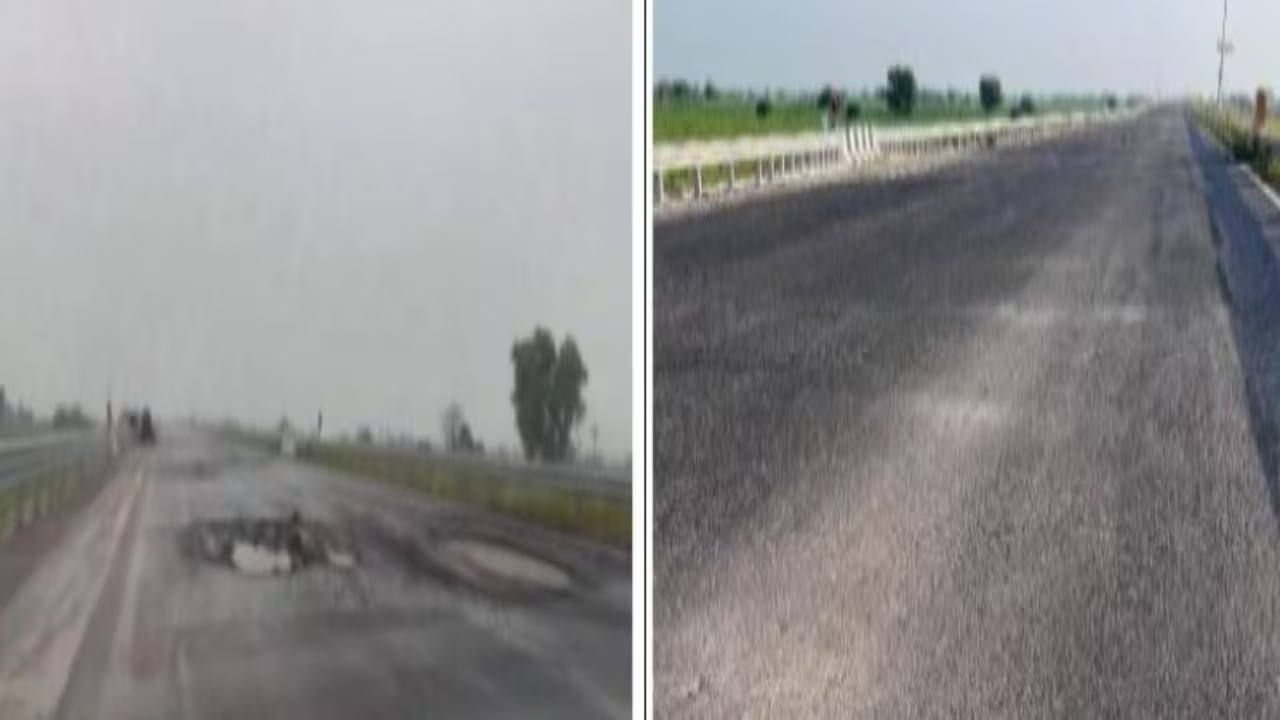The National Highways Authority of India (NHAI) has taken decisive action against a contractor, an authority engineer, and one of its own officials following the alarming distressed condition of pavement sections on the crucial Amritsar-Jamnagar Corridor in Gujarat. This swift intervention underscores India’s unwavering commitment to building robust, high-quality infrastructure that is not only vital for national economic progress but also integral to fostering sustainable, eco-friendly, and equitable urban centres across the nation. The incident highlights the rigorous oversight demanded for India’s ambitious connectivity projects, ensuring accountability for construction standards.
The specific failure was reported on a segment of the six-lane Sanchore – Santalpur Section, part of the extensive Amritsar-Jamnagar Economic Corridor (NH–754K) in Gujarat. The affected stretch, constructed by M/s CDS Infra Projects Limited, exhibited significant deterioration of its pavement crust. In an immediate response, NHAI debarred M/s CDS Infra Projects Limited from participating in all ongoing and future bids, concurrently issuing a show-cause notice that includes a substantial monetary penalty of ₹2.8 crore. Furthermore, the Authority’s Engineer, M/s SA Infra in association with M/s Upham, faced similar debarment, while the NHAI Project Director in Palanpur was placed under suspension, sending a clear message regarding the zero-tolerance policy towards negligence in public infrastructure.
Initial investigations into the pavement distress have pinpointed specific technical deficiencies: defects in the Aggregate Inter Layer (AIL) and the Cement Treated Base (CTB), compounded by inadequate drainage. These technical lapses are critical as they undermine the fundamental structural integrity of the road, leading to premature failure and necessitating costly repairs. Beyond immediate rectification, such incidents underscore the broader imperative for robust engineering practices and resilient design, especially as India builds infrastructure to withstand diverse climatic conditions and support the growth of future-ready, climate-resilient cities. Effective drainage, in particular, is paramount for the longevity of road assets and for mitigating environmental impacts such as waterlogging and soil erosion, which can affect adjacent urban and natural ecosystems.
Recognising the systemic implications of such failures, NHAI has constituted expert committees, comprising current and retired professors from prestigious institutions including IIT-BHU, IIT-Delhi, and IIT-Gandhinagar. These committees are tasked with a comprehensive analysis of the pavement failure, including on-site inspections, sample collection, and rigorous testing, to recommend detailed remedial measures. This proactive analytical approach is crucial for extracting lessons that can be integrated into future project specifications and quality control frameworks, thereby ensuring that India’s vast network of highways contributes meaningfully to a low-carbon future. High-quality roads reduce vehicle wear and tear, improve fuel efficiency, and ultimately lower vehicular emissions, directly benefiting the air quality and environmental health of nearby towns and cities.
The economic and societal ramifications of substandard road infrastructure are far-reaching. Poorly constructed roads translate into increased maintenance costs, prolonged travel times, and heightened risks for commuters, directly impacting logistics efficiency and the ease of trade—lifelines for India’s burgeoning economy and its expanding urban centres. Such disruptions impede the equitable flow of goods and services, disproportionately affecting communities reliant on efficient transport. Thus, NHAI’s stringent actions are not just punitive measures; they are strategic investments in public trust, economic stability, and the long-term well-being of citizens, reinforcing the foundational principle that dependable infrastructure is a cornerstone of an equitable and thriving society.
Ultimately, this incident on the Amritsar-Jamnagar Corridor serves as a potent reminder that India’s ambitious infrastructure development, while critical for economic growth, must never compromise on quality. The decisive response from NHAI signals a clear commitment to accountability across the entire project lifecycle, from design to execution. This unwavering focus on engineering excellence and rigorous quality assurance is indispensable for laying the groundwork for resilient, zero-net carbon cities, ensuring that India’s growing network of national highways serves as a durable backbone for sustainable development and an improved quality of life for all its citizens.
Also Read: Chennai sanctions ₹8,000 crore to upgrade rural roads statewide




